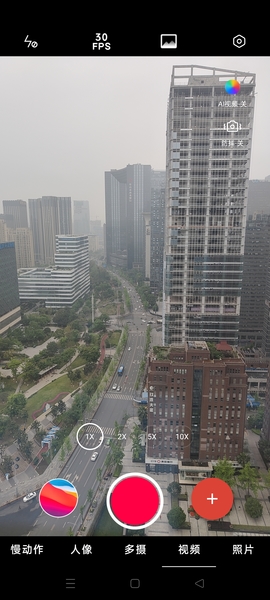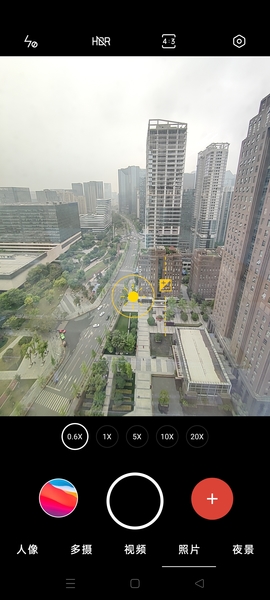English | 简体中文
CameraUnit is an open interface for OPPO's imaging capabilities, which can eliminate the gap between the system's imaging capabilities and third-party applications. Users can also get the same shooting experience as OPPO cameras in third-party applications. Provides a lightweight, fast and effective way to access the camera functions of the Coloros system.
This project provides a solution for accessing the ability to CameraUnit SDK, see Configuration and initialization instructions allowing you to refer to its call logic during the use of the SDK.
So far, this project has access to the following functions (depending on device model support):
| Video Function | Photo Function | Preview Only Function |
|---|---|---|
| Video Stabilization | Ultra Wide Angle Capture | Multi-Camera (Front & Back) |
| Video Super Stabilization | Portrait Capture | |
| Video Super Stabilization Pro | Night Capture | |
| AI Night Video | HDR Capture | |
| Video HDR | SAT Zoom | |
| Video Slow Motion | ||
| SAT Zoom | ||
| High FPS | ||
| 1080P Video |
Supported devices:
| A Series | F Series | R Series | Other Series |
|---|---|---|---|
| OPPO A93 | OPPO Find X2 | OPPO Reno2 Z | OPPO F17 Pro |
| OPPO A94 | OPPO Find X2 Lite | OPPO Reno 3 | OPPO F19 Pro |
| OPPO A95 | OPPO Find X2 Pro | OPPO Reno Ace2 | |
| OPPO Find X3 | OPPO Reno4 | ||
| OPPO Find X3 Pro | OPPO Reno5 | ||
| OPPO Find X3 Neo | OPPO Reno6 |
Now, we provide a sample program to show you the calling process of the interface,
you can also directly rely on the camerax module to your project for quick integration.
Version 1.0.0 is now released and stable. Updates are released periodically with new features and bug fixes.
Comments/Bugs/Questions/PR are always welcome! Please read CONTRIBUTING.md on how to report issues.
See update Log 。
Building project with gradle is fairly straight forward:
git clone [email protected]:oppo/CameraUnit.git
cd CameraUnit
./gradlew :app:assembleReleaseNote: Make sure your Android SDK has the Android Support Repository installed, and that your $ANDROID_HOME environment
variable is pointing at the SDK or add a local.properties file in the root project with a sdk.dir=... line.
Follow the steps in the Build section to setup the project and then edit the files however you wish. Android Studio cleanly imports both CameraUnit's source and tests and is the recommended way to work with CameraUnit.
To open the project in Android Studio:
- Go to File menu or the Welcome Screen
- Click on Open...
- Navigate to CameraUnit's root directory.
- Select
setting.gradle
To report a specific problem or feature request, open a new issue on Github. For questions, suggestions, or anything else, email CameraUnit's discussion group.
Please make sure to read the Issue Reporting Checklist before opening an issue. Issues not conforming to the guidelines may be closed immediately.
Please make sure to read the CONTRIBUTING.md before making a pull request. For more details, see the Contributing docs page.
Thank you to all the people who already contributed to this project!
- Airbnb lottie project member for lottie.
- FloatingActionButton project member for FloatingActionButton.
- CircleImageView project member for CircleImageView.
- Glide project member for glide.
- PermissionsDispatcher project member for PermissionsDispatcher.
- Everyone who has contributed code and reported issues!
@LiuCun at oppo, @JianGuo Yang at oppo.
Copyright (c) 2021 OPPO. All rights reserved.

